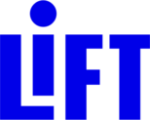It is far too easy to hear stories about the numerous people living in poverty, read the statistic that 13.5 percent of the United States population is living under the poverty line and think to ourselves, “that’s sad,” without fully comprehending what it all means. Yes, it’s sad. Really sad. It’s also frustrating, overwhelming, angering and heart-wrenching—all words that Bank of America Student Leaders used to describe their experience at our LIFTopolis event held earlier this July.
LIFTopolis is an interactive simulation meant to replicate the modern social services system. At this event, Bank of America’s community-minded students were each put into the role of one of the parent members that LIFT serves, experiencing the difficulty of navigating the complicated social services system. Volunteers from Bank of America and the Close Foundation as well as LIFT staff members were acting as the service providers that our members often encounter: the Social Security Administration, the DMV, child care services, pay-day centers and the like.
Though sometimes referred to as Sim City brought to life, LIFTopolis was certainly not just a fun video game or a chance to experience a childhood fantasy. In fact, it was just the opposite—it showed both the volunteers and the student leaders a reality that no one wants to live; yet unfortunately, so many people do.
I had the interesting role of the Chance Fairy, in which I skipped around the venue wearing a child’s set of wings and twirling my sparkly wand, representing the unpredictability of life. I had a master list of everyone’s assigned, fake names and I had the liberty of approaching anyone at any time during the simulation and choosing either a “good” or “bad” fortune that fit each specific biography. An example of a good fortune could be, “You found a pick-up babysitting job from a friend of a friend—you made $80!” But I could also decide to randomly bestow bad luck. An example of bad fortune could be, “Your mother passed away. If you do not have life insurance, you owe $300 in funeral expenses. Now that your mother can no longer watch your children, you also must pay for childcare.”
Once the student leaders started recognizing the purpose I served, they began to avoid me. Sure, I gave just as much good luck as I gave bad, but these students did not want the risk of bad fortune because they felt as if they already had an enormous supply. In fact, a few student leaders made me chase them across the venue before I could bestow their fate. One student even ran into the men’s bathroom and hid so that I could not read his fortune.
There’s a time when you laugh at the ridiculous concept of sprinting past 300 people across a hotel floor wearing fairy wings and waving a glittery wand to catch someone you don’t even know only to have them hide for ten minutes in the men’s bathroom, but there is also a time when you realize what it means.
It seems complicated enough to sort out identification, find a place to live and apply for jobs as a middle-class adult; but it seems just about impossible as the type of low-income parent who we see every day at LIFT, usually single, who has to fit all of these activities into the same day and simultaneously keep their children cared for and alive. It seems hard enough to work out funeral expenses if your mother passes away, something that can happen to any of us; but it seems just about impossible if you are living without a reliable source of income.
I’m sure some of LIFT’s members wish that they could run away from their stress and hide in the bathroom for a day until their problems simply ended, but it is clear that this is not their reality. They must, and they do, persevere through these hardships, attending LIFT’s financial coaching sessions so that they are in control of creating their own good fortune.
It is true that at the thought of poverty, we can think to ourselves, “that’s sad.” But it is also true that we can put ourselves in the low-income parents’ shoes to really understand how serious the “that’s sad” can be. Only then, once we understand the sadness, do we have the power to make a change. And that is exactly what the Bank of America student leaders are going to do with their newfound awareness.
The second part of LIFTopolis was the debrief portion, facilitated by our Bank of America volunteers and LIFT staff, in which student leaders not only discussed their frustrations but also developed ideas for actionable change. These students presented ideas about easily available kiosks with information about how to navigate the social services system, smartphone apps and websites that could describe exactly what identifications and documents you need before waiting in a long DMV line, and even a government mandate for all high schools that requires a course in financial literacy prior to graduation. Big ideas. Instead of running away and hiding in the bathroom, these students were standing up for something that they finally understood. All of this occurred because of the LIFTopolis experience and our generous volunteers who made the simulation as realistic as possible.
Yes, poverty is sad. But no, that doesn’t mean we can’t do something to change it, especially when we are given the opportunity to understand.
This blog post was written by Rosie Arbittier, a student at Princeton and a summer 2017 intern at LIFT.
